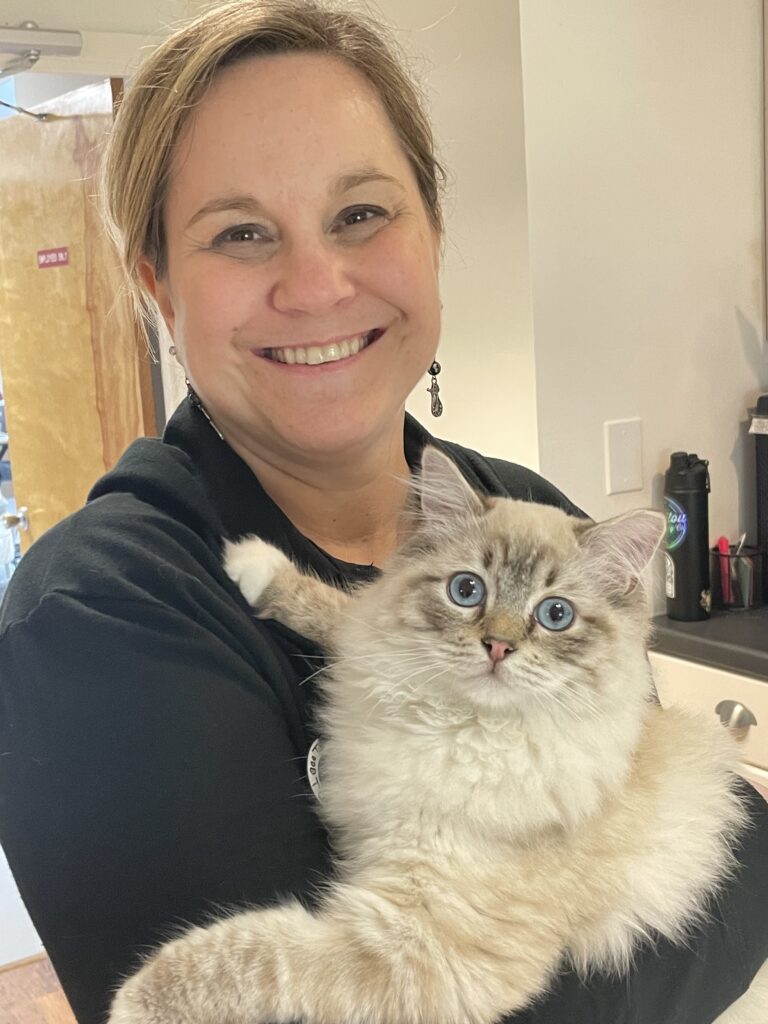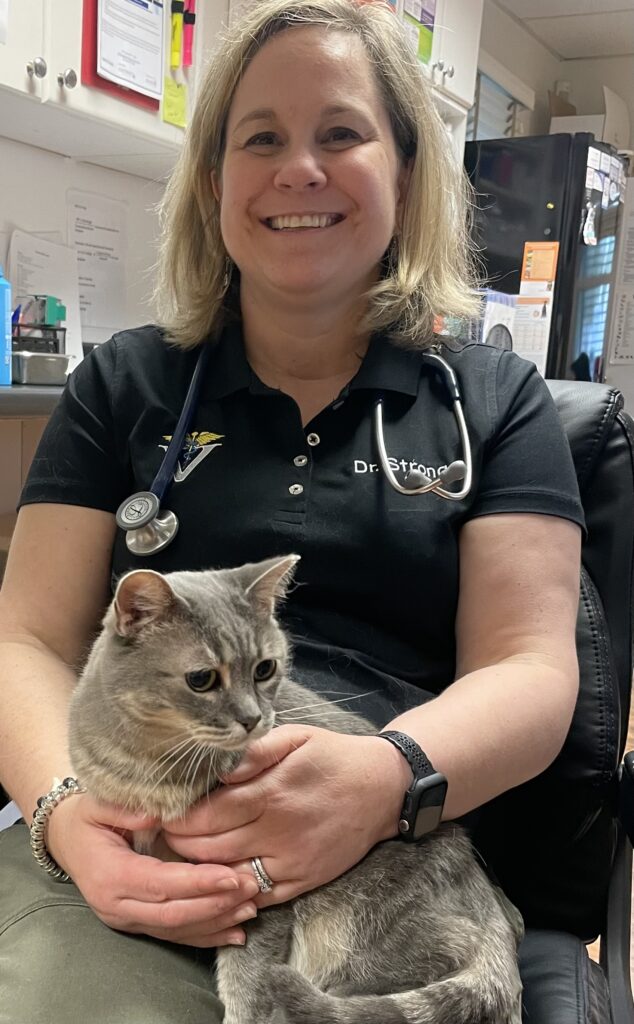Dr. Stacey Strong is a Feline Friendly Practioner!

At Palmetto Veterinary Hospital, we love our feline friends! That’s why our team is passionate about educating the community and our clients about declawing alternatives, zoonotic disease, and ensuring an enjoyable experience at your next vet visit.
GETTING YOUR CAT TO THE VET
Many cats dislike going to the veterinarian, and that usually starts with the difficulty of getting your cat into the carrier. Once you’ve mastered how to get your cat into their carrier, the entire veterinary visit is usually less stressful. Learn more, here.
OUR HOSPITAL
As a cat-friendly veterinary clinic in Mount Pleasant, SC, we are constantly looking for ways to make our feline patients comfortable! We understand that cats react very differently than dogs in a veterinary hospital and are doing our best to make sure we are making them feel as calm as we can.

DECLAWING
Our Stance
Palmetto Veterinary Hospital does not perform declawing on cats at our practice.
Declawing is an amputation of the third digit of the toe bone. It is comparable to removing a human’s last digit of each finger. As it is not medically necessary in most cases, this is not a service we provide at our facility.
Our decision is in support of the American Association of Feline Practitioners (AAFP) policy and position statement, which can be found at Catvet.
Why do cats scratch?
While it can be destructive, scratching is a normal and instinctual behavior for all cats!
The primary reason cats scratch is to maintain the necessary claw motion used in hunting and climbing, as well as a means to stretch their body. Scratching serves to groom the front claws and leave markers of the cat’s presence. A cat’s claws grow in layers and scratching removes the worn outer layer to expose the new growth inside. Cat owners must therefore provide alternatives for cats such as suitable scratchers.
Cat Declawing Alternatives in Mount Pleasant, SC
- Scratching Posts & Pads – Provide your cat with suitable ‘scratchers’ where they can exhibit normal scratching behavior. Scratchers come in multiple styles and textures.
- Regular Claw Trimming – Regularly trimming your cat’s claws can prevent injury and damage to household items. Proper feline nail trimmers should be used to prevent splintering of the claws.
- Nail Caps – These caps are glued over your cat’s nails to help prevent human injury and damage to household items.
- Pheromone Usage – Consider using synthetic facial pheromone sprays and/or diffusers to help relieve anxiety or stress.
- Behavioral Enrichment – Providing your cat with an environment that is enriching is vital to teaching your cat to scratch on appropriate objects. Destructive scratching can occur in cats because their needs have not been fully met.
We are able to provide some of these services or products directly within our hospital.
Additional Resources
ZOONOTIC DISEASES
Zoonotic diseases are diseases that can be transmissible from animal to people.
At Palmetto Veterinary Hospital, our team is passionate about educating our clients and the community about the risk that these can pose when having a companion animal. Sometimes, zoonotic diseases do not necessarily have visible or noticeable signs in humans. Because of this, minimizing risk to yourself and your family when you have a pet (cat or dog!) in your home is important. As cats commonly perform their eliminations inside our homes, the risk can be increased.
Some Cat-Associated Zoonoses
- Bacteria such as bartonella, strep, or salmonella
- Parasites such hookworms or tapeworms
- Viruses such as rabies
- Toxoplasmosis
Prevention
The best way to prevent zoonotic infections in your home are by keeping your pet up to date on recommended vaccinations, practicing good hygiene around pet’s litterboxes and food bowls, and talking to your own healthcare provider regarding any health risks you may be concerned about.
Additional Resource
What's Next
Call us or schedule an
appointment online.Meet with a doctor for an
initial exam.Put a plan together
for your pet.

